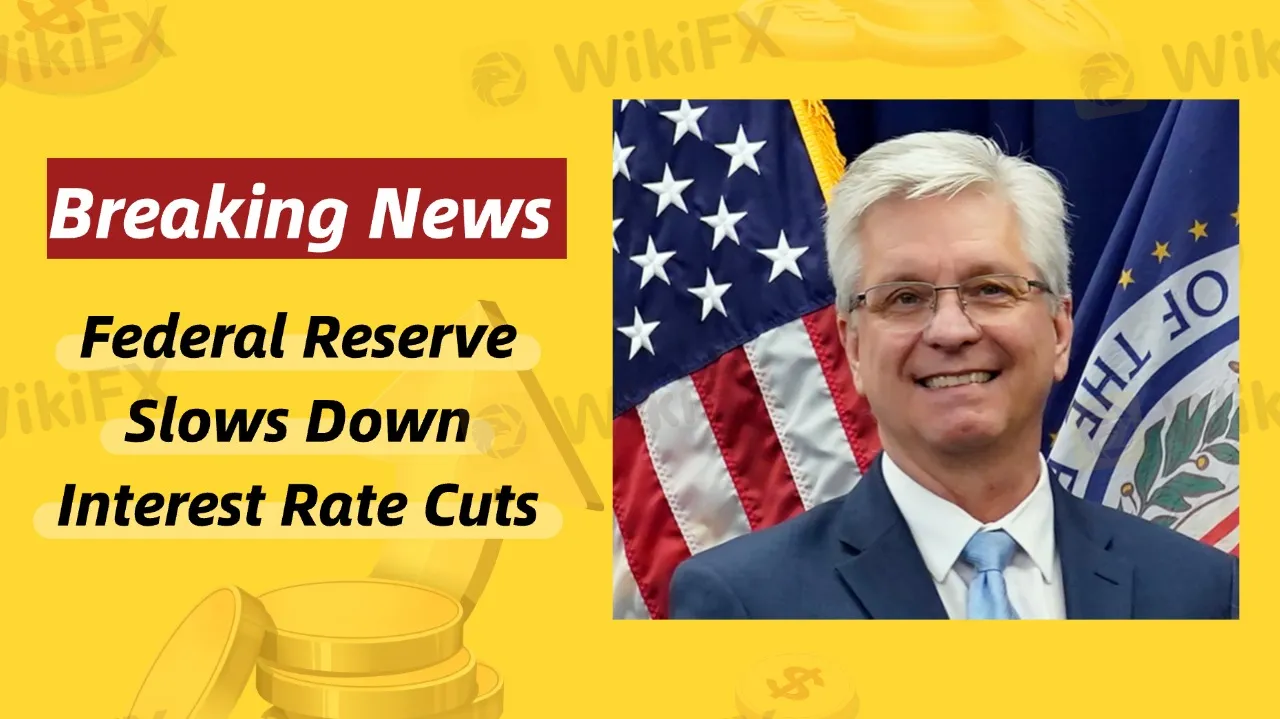简体中文
繁體中文
English
Pусский
日本語
ภาษาไทย
Tiếng Việt
Bahasa Indonesia
Español
हिन्दी
Filippiiniläinen
Français
Deutsch
Português
Türkçe
한국어
العربية
Breaking News! Federal Reserve Slows Down Interest Rate Cuts
Abstract:The latest Federal Reserve meeting minutes show that Fed officials are generally concerned about the upward risks to inflation, suggesting that future rate cuts may slow down.

The US dollar has risen for the second consecutive trading day, with the Dollar Index briefly surpassing the 109 mark, rising 0.4% to 108.99, reflecting the market's attention on the Fed's policy outlook.
Why the Rate Cuts May Slow Down?
Fed officials noted that due to stronger-than-expected economic data, especially the performance of the labor market, and potential policy changes (such as trade and immigration policies), inflationary pressures could persist. These factors led some officials to believe that inflation could prove to be more persistent than previously anticipated, thus making them more cautious about continuing to cut rates. While the Fed still expects to bring inflation down to its 2% target over the next few years, the potential risks to inflation remain difficult to fully mitigate at this point.
Additionally, officials have expressed particular concern over the trade protectionist policies and immigration policies that the Trump administration might implement. These policies, such as tariffs and stricter immigration requirements, could increase labor costs and the prices of goods, complicating efforts to manage inflation.
In conclusion, despite the Fed's rate cuts, officials remain generally concerned that the risks of inflation are not fully eliminated, and therefore, future rate cuts are likely to slow. The market has responded by showing strong demand for the US dollar, which has driven the Dollar Index higher. The Fed's future monetary policy decisions will depend on changes in economic data, especially inflation and employment figures, and investors should closely monitor upcoming economic reports.

Disclaimer:
The views in this article only represent the author's personal views, and do not constitute investment advice on this platform. This platform does not guarantee the accuracy, completeness and timeliness of the information in the article, and will not be liable for any loss caused by the use of or reliance on the information in the article.
Read more

Japan’s Economy Under High Tariffs: A Gloomy Outlook
Export restrictions, currency fluctuations, and upcoming tariff talks cloud Japan's economic outlook.

FCA Strengthens Global Engagement with New US and Asia-Pacific Offices
In a strategic move to broaden its international footprint, the Financial Conduct Authority (FCA) is establishing its first-ever physical presence in both the United States and the Asia-Pacific (APAC) region. This initiative aims to reinforce the UK's status as a global hub for financial services and foster deeper regulatory cooperation and market access.

PU Prime Teams Up with Argentina AFA to Boost Forex Trading Reach
PU Prime partners with Argentina’s national football team, AFA, to promote forex trading, financial education, and global brand expansion in key markets.

US March Inflation Data Released: A Mixed Bag
Short-term inflation climbs, job market anxiety rises, and the outlook remains divided.
WikiFX Broker
Latest News
ICM.com Secures UAE License, Boosts Middle East Expansion
Navigating the Dollar’s Fall: Investor Strategies Unveiled
WikiFX "World Elite Trading Championship" Concludes Successfully
Engineer Defrauded of RM156,000 in ‘Perniagaan Bos’ Investment Scam
Cracking the RM3.17 Billion MBI Scam: 8 Arrested, Including 4 Datuks
US stock markets rise on Trump tariff rollback
Singapore Authorities Warn Public of OneMotoring Phishing Scam, $407K Lost
4 Firms Named by FCA for Operating Without Authorisation or Impersonating Licensed Companies
False Promises, Real Losses: The Dark Reality of Online Trading Scams
14 Abusive Websites Blocked by CONSOB in Latest Crackdown
Currency Calculator


